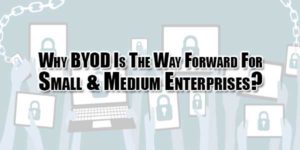
Most businesses today need web presence. They also rely on a good Internet connection more so that the business can effectively function. Typically, broadband service is their choice. However, due to variation in broadband plans and Internet service bundles that different Internet service providers (ISPs) offer, business now has a more difficult time in choosing the right broadband package that will fit their line of work. Careful consideration is needed when you factor in uptime, speed and service support together with costs. While most packages seem to offer what you need, there are specific Internet packages that are tailored for businesses. Here are some tips to help you select the most fitting for the size of your organization.
Table of Contents
Why Broadband?
Unless you live in a very remote area, broadband Internet is what you will most typically encounter in most parts of the country. Broadband is 4x faster than the older dial-up with a modem method according to the definition of the Organization for Economic Cooperation and Development (OECD). But that was in 2006. Moreover, broadband is always on and is available even without a standard phone line. Broadband speed is measured in Mbit/s
Broadband Connection:
What interests most businesses in broadband services is the upload speed, as most of them rely on Internet connection in the conduct of business each day. Upload speed is important as this will tell you how fast information can be exchanged from one computer to the other via the Internet. However, business owners should likewise look for synchronicity, meaning the download speed should match the upload capabilities of the broadband service. ADSL/SDSL, cable and fiber optics are the choices, although the latter is still not widespread.
Below are rough estimates of how much connection speed you need based on your organization’s size:
Under 30 Employees:
A typical broadband connection for business starts at about 2Mbit/s. Speed would be between 8Mbit/s and 24Mbit/s. Without taking the bandwidth demand of users, these are your options:
- 0 – 10 staff – 2Mbit/s up to 8Mbit/s
- 10 – 20 staff – 8Mbit/s to 20Mbit/s
- 20 – 30 staff – 24Mbit/s

30+ Employees:
For an organization this size, a bonded broadband connection is ideal. It is a virtual combination of 2 or more broadband lines, forming one single dedicated connection. This is slightly more expensive than a solo broadband connection.
50+ Employees
Consider a leased line if you have 50 or more people in your employ. This has a more stable and faster direct connection to the Internet with very low contention ratios.
Contention ratio is the number of users sharing the same broadband package in a single physical line. The contention ratio for a domestic broadband package can be 20:1 or 50:1, meaning 20 to 50 users can be on one package and will be using the package’s full speed. Thus, if the package offer is up to 10Mbits/s, keep in mind that this is for a single user. If there are more users for the single line, this speed cannot be delivered.
In business broadband, the contention ratio starts at 20:1, and there will be others that will offer a 1:1 contention ratio. Look for an ISP that can offer a business broadband package with either a 10:1 (minimum) or 5:1 contention ratio. Most ISPs will offer 1:1 for bonded connections and leased lines.
Other Factors:
Other factors you have to consider include having a static of dynamic IP address. A dynamic IP means the numerical label of a computer changes each time the user starts or restarts the connection to the Internet. A static IP address does not change, which is important if you’re maintaining a website.
Consumers demand higher and higher speeds for downloading huge amount of data, which is very expensive for the providers. To counteract this, the ISPs introduced a monthly download limit, called capping. While business broadband packages should not have a cap, they do exist. If your business only uses the Internet for general email and occasional Internet access, a download cap is not that important to you. Otherwise, look for a package that has an “unlimited” connection. But if your business use high-bandwidth services such as streaming, FTP servers, mail servers, websites, etc., you have to look for a business package without a cap.
Technical support, security and package scalability are equally important when choosing a business broadband package.
Be informed about the differences among business broadband packages so that you can fully discuss your requirements with the Internet service provider and get the package that will provide the best service for all your users.














Thanks for sharing some of most valuable and informative posts . Also check my post.
Welcome here and thanks for reading our article and sharing your view.
You have a gorgeous, lush blog- and in such a few posts. keep up the good work!
Welcome here and thanks for reading our article and sharing your view.